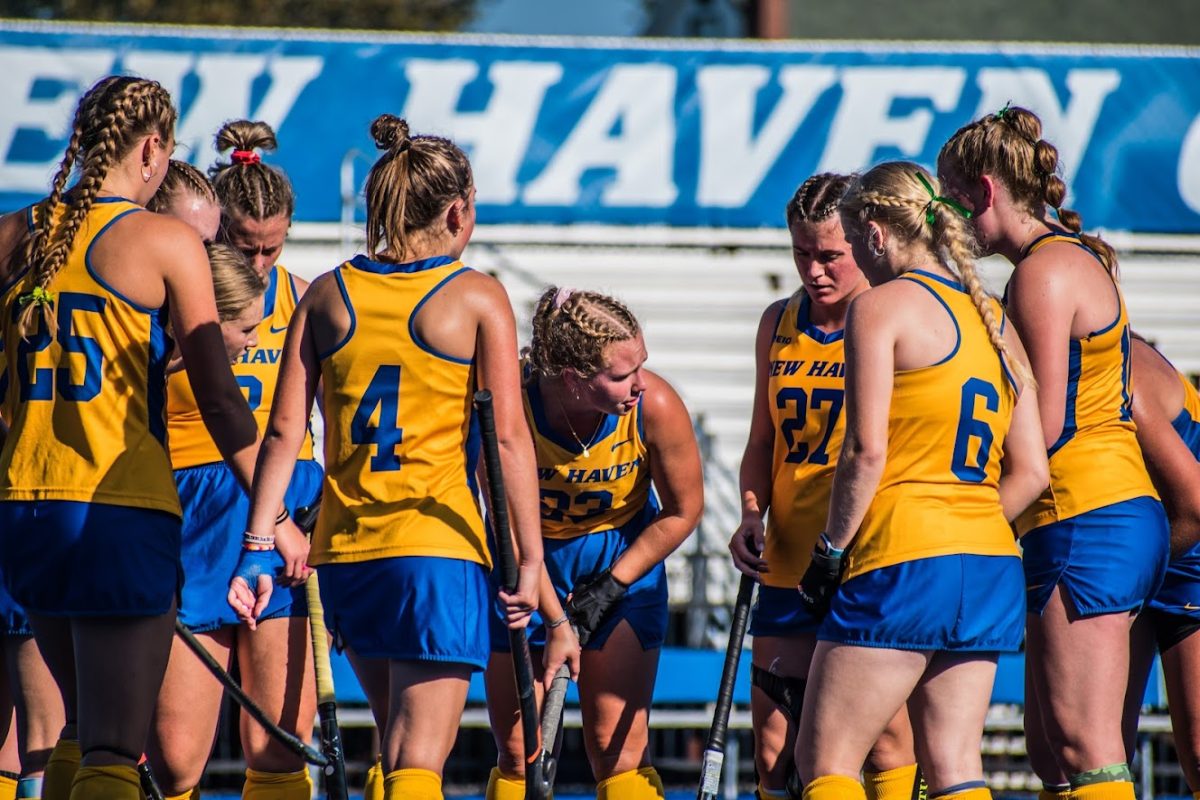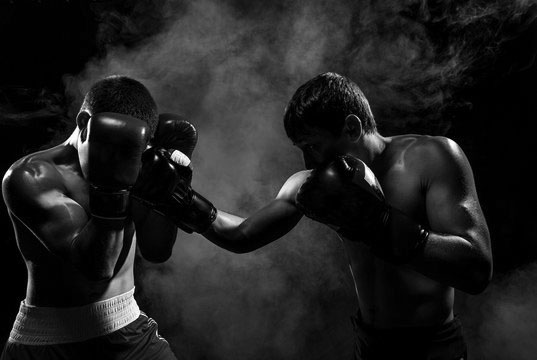Wake up at 4:30 a.m. Be on the field at 5:45 a.m. Practice for two hours. Eat breakfast. Shower. Go to classes. Eat dinner. Go to team study hall. Sleep. Repeat four more times this week.
That is the daily schedule of Kelli Jacobson, captain of the New Haven field hockey team. A junior criminal justice major, Jacobson was chosen by her team to step into the leadership role.
Her season started with adjustments. The field hockey program chose new captains for the 2023 season and welcomed a new head coach, Margaret Maclean. In the 2022 season, the Chargers ended with a record of 9-11. This past season, the team finished with a 5-13 record, which was the first time in two years the Chargers failed to reach the Northeast-10 conference (NE-10) playoffs, according to the Charger Athletics website.
“This year was very difficult for the team since we were adjusting to a new coach, and we obviously weren’t winning a lot,” said Jacobson.
Maclean provides her team with a total of four mental health days for the whole year. When an athlete decides to take their mental health day, they are excused from practice or team lift and there is no requirement to make it up. Maclean has a no questions asked policy, which means that when an athlete uses a mental health day, she will not ask follow-up questions.
The university has 20 varsity sports and around 500 student-athletes, according to the school’s website. While Maclean provides mental health support for her team, that may not be the case for all student-athletes representing the school.
“I do not feel that the athletic department provides enough mental health resources,” Jacobson said. “I feel like if you make connections with the administration or coaches, you can feel supported. But personally, I do not feel supported beyond that.”
The university does provide the opportunity for therapy through its Counseling and Psychological Services (CAPS). According to the CAPS website, the office offers support to students through individual counseling, support groups and other supportive efforts. But that may not be as beneficial for athletes, who have more niche needs and narrower windows of availability, especially during the office’s operating hours.
“I have never wanted to use the school resources of therapists because I do not believe they would be able to understand what I am going through and struggling with regarding athletics,” said Jacobson. “I think therapists specifically for athletes could be an extremely useful addition. Many division one schools have sports psychologists and, although I know this is something that is not in the budget, I think it should be slowly implemented.”
Maclean said, “I think athletic specific counselors or mental health professionals” should be on staff in the athletic department for the athletes. “It’s really hard to know what an athlete is going through if you don’t understand it.”
The university is a part of the National Collegiate Athletic Association (NCAA), a non-profit organization that supports the success of college athletes and awards nearly $3.5 billion in athletic scholarships.
The NCAA collaborates with the Sport Science Institute (SSI) to develop educational resources and programs regarding mental health for the NCAA’s member schools. SSI’s mission, according to its webpage, is “to promote and develop safety, excellence and wellness in college student-athletes, and to foster lifelong physical and mental development.”
Also, SSI provides a book, Mental Health Best Practices, with “resource-independent recommendations for member schools to support” their student athletes’ mental health, according to the NCAA website. The publication was developed and endorsed by “25 of the most prominent mental health, medical, higher education, and sports medicine organizations in the nation.” An updated version of this publication will be published on Aug. 1, according to a newsletter released on the NCAA website.
“The second edition of the Mental Health Best Practices document affirms the NCAA’s constitutional commitment to our student-athletes. It provides tangible approaches for schools to consider implementing at the community, campus, athletics department and team level to support, promote and manage student-athlete mental health,” said Linda A. Livingstone, president at Baylor and chair of the NCAA Board of Governors.
The NCAA provides the guidelines and procedures on how to support mental health at the college athletics level, but the school makes the final decisions. Both Jacobson and Maclean say they would like the university’s athletic department to provide more support.
“Athletes are supposed to be strong and tough all the time and when you have that image, it can be very lonely and hard to live up to,” said Maclean. “It’s hard to tell when an athlete is struggling, so I think it’s important to talk about and break the stigma of the conversation. I feel like when you can let someone know they aren’t alone, they can rise to their full potential.”
Erin Smith is a member of the New Haven field hockey team.
What comes first: mental health or winning?
Kelli Jacobson talks to her team, West Haven, Oct. 1, 2023.
0
More to Discover




